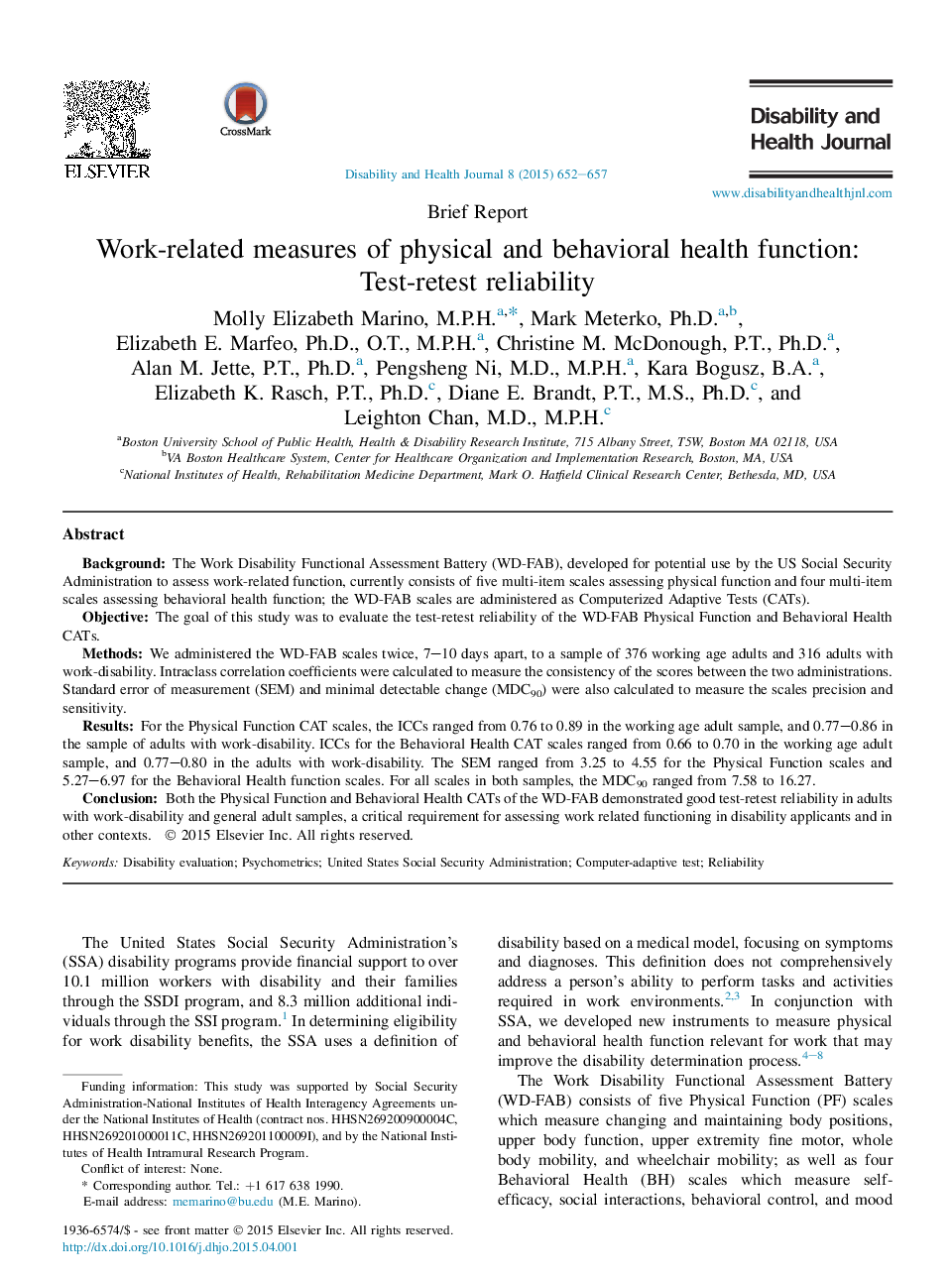| Article ID | Journal | Published Year | Pages | File Type |
|---|---|---|---|---|
| 6238870 | Disability and Health Journal | 2015 | 6 Pages |
BackgroundThe Work Disability Functional Assessment Battery (WD-FAB), developed for potential use by the US Social Security Administration to assess work-related function, currently consists of five multi-item scales assessing physical function and four multi-item scales assessing behavioral health function; the WD-FAB scales are administered as Computerized Adaptive Tests (CATs).ObjectiveThe goal of this study was to evaluate the test-retest reliability of the WD-FAB Physical Function and Behavioral Health CATs.MethodsWe administered the WD-FAB scales twice, 7-10 days apart, to a sample of 376 working age adults and 316 adults with work-disability. Intraclass correlation coefficients were calculated to measure the consistency of the scores between the two administrations. Standard error of measurement (SEM) and minimal detectable change (MDC90) were also calculated to measure the scales precision and sensitivity.ResultsFor the Physical Function CAT scales, the ICCs ranged from 0.76 to 0.89 in the working age adult sample, and 0.77-0.86 in the sample of adults with work-disability. ICCs for the Behavioral Health CAT scales ranged from 0.66 to 0.70 in the working age adult sample, and 0.77-0.80 in the adults with work-disability. The SEM ranged from 3.25 to 4.55 for the Physical Function scales and 5.27-6.97 for the Behavioral Health function scales. For all scales in both samples, the MDC90 ranged from 7.58 to 16.27.ConclusionBoth the Physical Function and Behavioral Health CATs of the WD-FAB demonstrated good test-retest reliability in adults with work-disability and general adult samples, a critical requirement for assessing work related functioning in disability applicants and in other contexts.
